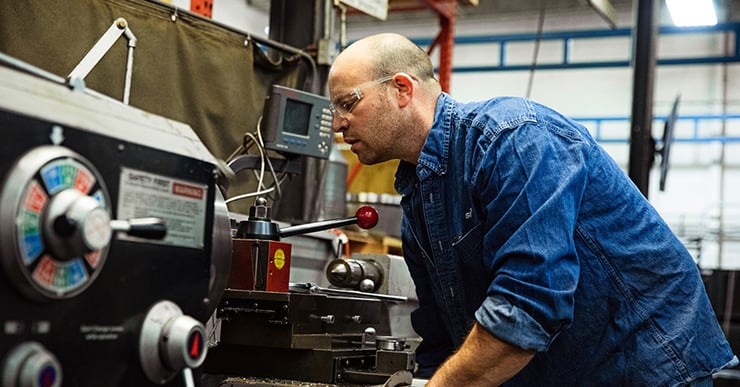Any problems with your centrifuge, no matter how minor, can halt your operations at a moment’s notice. And every minute your equipment isn’t working, you're losing time and money. Centrifuges do their job extraordinarily well, but only if you take the proper care to keep them running smoothly.
What Is the Cost of Downtime?
It’s easy to understand why facilities don’t want to pause operations in order to service and maintain equipment. Whether planned or not, the cost of downtime in manufacturing adds up. However, there is a difference between planned downtime and unexpected downtime.
Unexpected downtime or emergency equipment failure is something that shows up when you least expect it — and all too often on a Friday afternoon or in the middle of a holiday weekend. But whenever it happens, operations and maintenance managers have to show up and find a solution. And they have to do it fast. Tick. Tock.
Weigh the Cost of Preventative Maintenance

The best way to prevent equipment failure is to provide it with regular maintenance. There will always be a reason to put it off for another day, but that kind of system will only work for so long. Planned downtime will always cost less than unplanned.
When a shutdown is planned, you can prevent a lot of loss by being proactive. Does your production crew need to sit for an educational or safety training twice a year? You could schedule your heavy equipment maintenance during that same time. Is there a particular season where production demand is lighter than the rest of the year? Plan your preventative maintenance then.
Schedule minor services for your centrifuge.
Minor service refers to maintenance of the top end of your centrifuge or separator. These types of services should be done at least every six months. If your equipment is being used 24/7, then minor services should be performed more frequently.
Minor servicing begins with disassembling the bowl and inspecting the pumps and disc stack. Each disc is manually cleaned and checked for cracks or defects. During the bowl inspection, it’s checked for galling and for corrosion on the pistons.
Once the full disc stack has been torn down and removed from the distributor, the bowl can be fitted with new gaskets. This kind of work requires a skilled technician, so be sure to hire out.
It’s important that you are properly cleaning your centrifuge daily, or minor services can take much longer (including a lengthened pre-soak and caustic wash cycle). As you do your routine maintenance, keep an eye and ear out for vibrations or abnormal noises that may be coming from the equipment. These can be red flags indicating that a full inspection is needed.
Don’t delay major services for your centrifuge.

No matter how well you take care of your centrifuge, general wear and tear is expected, and major services will still be required.
Major servicing includes everything that minor servicing includes, plus some more involved checks and adjustments. It generally includes:
- All minor service maintenance on the top portion of the centrifuge:
-- Bowl disassembly/cleaning
-- Inspection/replacement of the pumps and disc stack
-- Inspection/replacement of pistons and gaskets - Inspection and maintenance of the bottom/base, including:
-- Inspection/replacement of gears
-- Inspection/replacement of seals
-- Inspection/replacement of belts
The most important final step of a major service is calibration. Calibration entails flushing water through the centrifuge, looking for leaks, and checking for any discharge that may occur. Improper calibration can lead to some unpleasant problems, so leave this one to the pros.
Not sure how to prepare for your maintenance check-up? Check out our pre-maintenance checklist.
Prevent facility downtime by staying current on your service checks.
You may see servicing as a necessary evil, but it’s better than a complete breakdown of your centrifuge or separator, which can lead to days of downtime. By taking simple preventive steps, you can avoid costly halts in operation and decrease the frequency of costly repairs.
Keep your equipment clean, follow a maintenance schedule, and perform annual preventative maintenance to get the maximum productivity and longevity out of your centrifuge. To schedule centrifuge maintenance performed by experienced, reliable technicians, contact Separators today.
Interested in learning more about preventative maintenance for centrifuge equipment? Download your copy of our service report.

